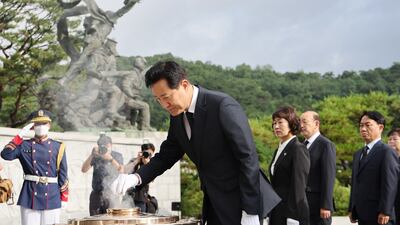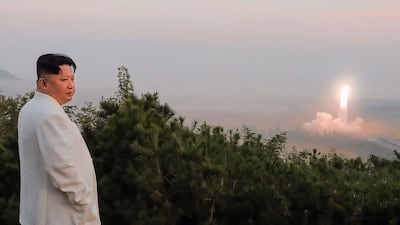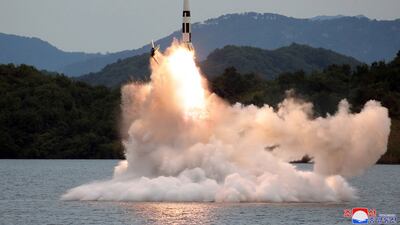One of South Korea’s most influential politicians has called for the country to be armed with nuclear weapons.
Seoul Mayor Oh Se-hoon said North Korea’s continued progress with its nuclear weapons programmes would justify a South Korean nuclear option for the sake of deterrence.
Seoul would bear the brunt of a conflict on the Korean peninsula, even in the event that nuclear weapons were not used.
The city is within artillery range of North Korea and in 2017, the US estimated that a new conflict would cost 20,000 lives a day.
North Korea’s nuclear arsenal and weapons tests are a persistent fear for Seoul, a city of about 10 million people that is less than 24km from the North Korean border.
According to estimates made in 2022 by the Federation of American Scientists, North Korea may have between 20 and 30 nuclear weapons, an assessment based on the country's likely stockpile of enriched uranium.
President Yoon Suk Yeol said in January that his country would examine the option of nuclear weapons to deter the North and that if such a decision were made, South Korea could develop the bombs “pretty quickly, given our scientific and technological capabilities”.
Mr Oh is a member of the president’s conservative People Power Party, and has been tipped as a potential presidential candidate in 2027.
The mayor of Seoul is a powerful position in South Korean politics and several mayors have gone on to lead the country.
“North Korea has nearly succeeded in miniaturising and lightening tactical nuclear weapons, and secured at least dozens of warheads,” Mr Oh said.
“We've come to a point where it is difficult to convince people with the logic that we should refrain from developing nuclear weapons and stick to the cause of denuclearisation.”
However, surveys show unprecedented levels of public support in South Korea for the once unthinkable idea of a home-grown nuclear arsenal.
In a poll released on March 1 by Data Research, more than 70 per cent of South Koreans supported developing nuclear weapons while 27 per cent opposed the idea. The poll also showed that 59 per cent believe North Korea will probably use nuclear weapons if war breaks out on the peninsula.
Mr Oh said the Ukraine crisis had cemented his conviction that denuclearisation had lost its appeal, and that nuclear weapons would be the most effective deterrent against the North.
“Russia freely violates Ukraine's air space, flying bombers and firing missiles … but Ukraine barely attacks Russian territory because of the psychological inferiority to a nuclear state,” Mr Oh said.
He dismissed opponents who warned of punishments from other countries, including sanctions, saying a South Korean nuclear programme would send a message to countries such as China to curb the North's military build-up.
“There may be some initial resistance from the international community, but I believe that it will gain more support eventually,” he said.
A former senior US official said the increase in rhetoric from the Yoon administration seems to be driven by a desire to pile pressure on Washington into giving South Korea more say in nuclear planning.
Mr Yoon said America's extended deterrence was “falling short of convincing” South Koreans.
Washington has agreed to establish more information-sharing and conduct tabletop drills to enable greater allied co-operation.







